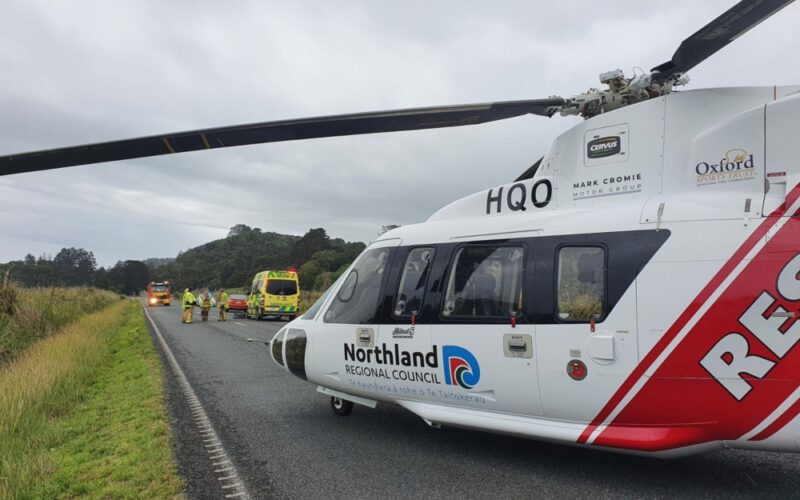Funding of donations-dependent emergency rural helicopter services should be included in a Health NZ review of emergency and unscheduled care in rural areas.
This is according to Federated Farmers president Wayne Langford, who said he hopes the review will address the current inequity of services and access faced by rural people. The role of helicopters and ambulances in transferring patients must also be addressed, he said.
Adeline Cumings, Health NZ (Te Whatu Ora) manager of primary health care system improvement and innovation, said the review will initially analyse the different approaches currently taken to address emergency and unscheduled care across rural NZ.
Data provided by Health NZ (Te Whatu Ora) shows 150 more patents were transferred by helicopter from rural health facilities to urban between 2021, when there were 1344, and 2022, when it rose to 1502.
Langford said in some cases it is more cost efficient and viable to despatch a helicopter to take a patient to hospital than initially sending an ambulance only to have the patient later transferred by air.
Another issue he hopes will be included is the definition of rural, given the expansion of large urban centres that now include what were once rural towns.
The review comes as rural health professionals say rural health services are collapsing due to a lack of staff.
It has been estimated rural general practitioners are short 150 doctors – and 100 of those vacancies have been unfilled for a year or more.
Cumings said there is no consistency in how emergency care is currently delivered.
“Although there are similar challenges and themes in terms of access to services and equity of outcomes, there are nuances across the country,” she said.
The review will take up to 18 months and look at existing services with providers, and funding partners such as ACC, with the aim of developing joint approaches on how availability of these services can be improved and streamlined.
Cumings said there are some early actions already underway, including working with sector partners to gather insights into the current Primary Response in Medical Emergencies (PRIME) and after-hours provision in rural communities.






